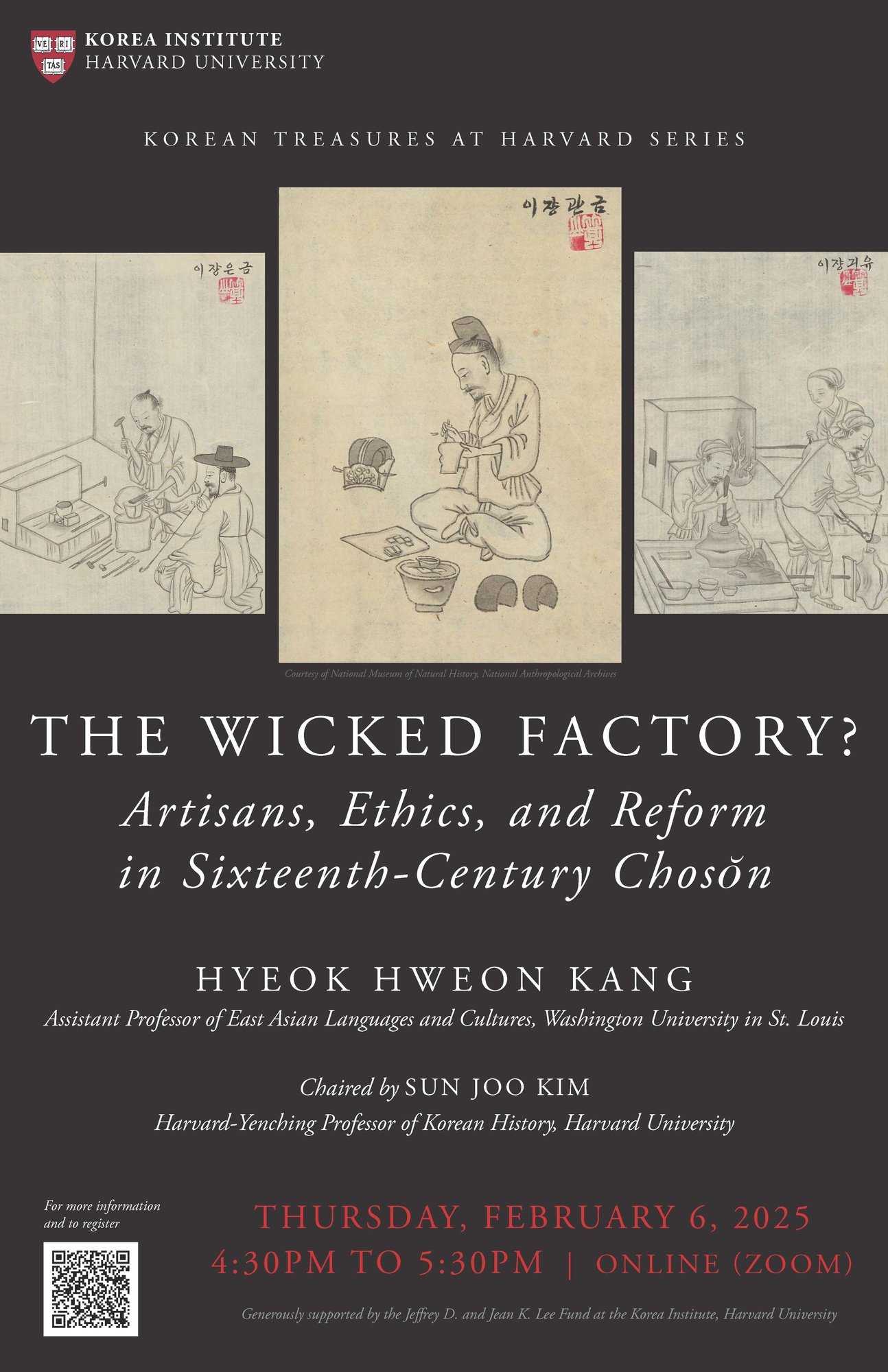time zone will be applied.
Report this post?

Register above to attend the event online.
Hosted as part of the Korea Institute's Korean Treasures at Harvard series, this fascinating talk offers fresh insights into the conception of artisanship and government manufactories in Chosŏn Korea (1392–1910)—a period often thought to have overlooked their significance. It also sheds light on important records on artistry preserved at the Harvard-Yenching Library.
Hyeok Hweon Kang is Assistant Professor of East Asian Languages and Cultures at Washington University in St. Louis. His current book project, Artisanal Heart: Artificer, Statecraft, and Technology in Early Modern Korea, examines the culture of material design and production in Chosŏn Korea (1392–1910). Portions of this work have received the Turriano ICOHTEC Prize from the International Committee for the History of Technology, the Joan Cahalin Robinson Prize from the Society for the History of Technology, and the ICAS Book Prize (English—Best Dissertation in the Humanities) from the International Convention of Asia Scholars. His research on the history of science and technology and global material culture has also appeared in Isis: A Journal of the History of Science Society, History & Technology, Journal of Cultural Analytics, and the Journal of Asian Studies.
Chaired by Sun Joo Kim, Harvard-Yenching Professor of Korean History, Harvard University
Abstract:
The sixteenth century is often portrayed as a period of decline for Chosŏn Korea (1392–1910)’s government manufactories. Historians have attributed this supposed collapse to systemic inconsistencies, corruption, and the artisans’ alleged disloyalty and selfish pursuit of profit. However, this declensionist narrative, originally voiced by Chosŏn officials, reflects contemporary anxieties about state manufacture amidst a commercializing economy rather than actual decline. Drawing on little-studied evidence from the Harvard-Yenching Library, such as Yang Ŭngjŏng’s 梁應鼎 (1519–1581) Songch’ŏn Sŏnsaeng yujip 松川先生遺集, this talk shows that the factories in fact witnessed a “revival of the hundred crafts” during King Chungjong’s 中宗 (r. 1506–1544) reign. Neo-Confucian scholar-officials collaborated with artisans across fields as diverse as silk weaving, decorative metalwork, and clockmaking. By mid-century, narratives about artisanship shifted: some scholars embraced blacksmithing as an ethical practice, while artisans, through their craft, embodied Confucian virtues like frugality and morality, reshaping the relationship between ethics and expertise in Chosŏn Korea.
For further information: click here